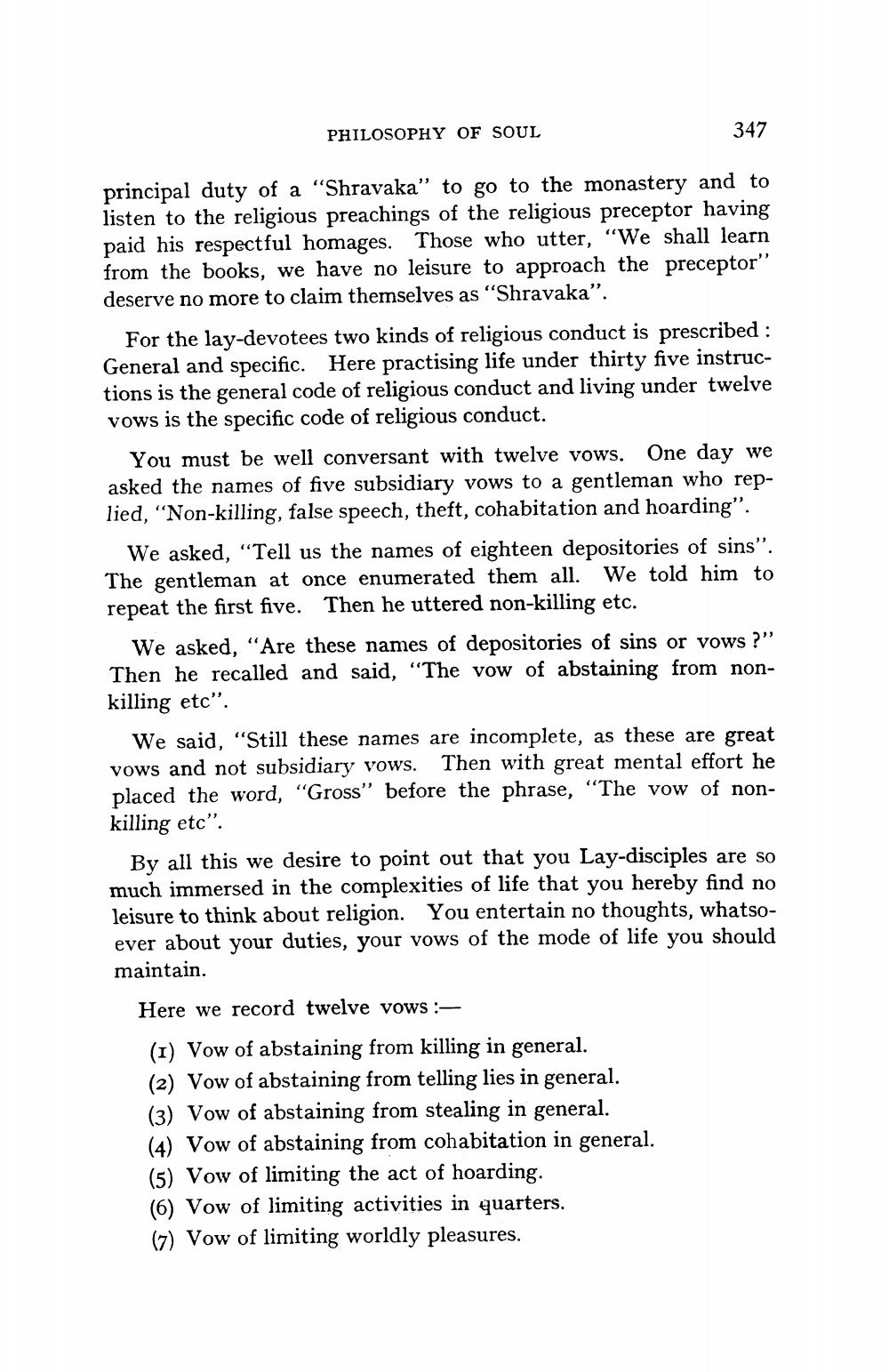________________
PHILOSOPHY OF SOUL
347
principal duty of a "Shravaka" to go to the monastery and to listen to the religious preachings of the religious preceptor having paid his respectful homages. Those who utter, "We shall learn from the books, we have no leisure to approach the preceptor" deserve no more to claim themselves as "Shravaka".
For the lay-devotees two kinds of religious conduct is prescribed : General and specific. Here practising life under thirty five instructions is the general code of religious conduct and living under twelve vows is the specific code of religious conduct.
You must be well conversant with twelve vows. One day we asked the names of five subsidiary vows to a gentleman who replied, "Non-killing, false speech, theft, cohabitation and hoarding".
We asked, "Tell us the names of eighteen depositories of sins". The gentleman at once enumerated them all. We told him to repeat the first five. Then he uttered non-killing etc.
We asked, "Are these names of depositories of sins or vows?" Then he recalled and said, "The vow of abstaining from nonkilling etc".
We said, "Still these names are incomplete, as these are great vows and not subsidiary vows. Then with great mental effort he placed the word, "Gross" before the phrase, "The vow of nonkilling etc".
By all this we desire to point out that you Lay-disciples are so much immersed in the complexities of life that you hereby find no leisure to think about religion. You entertain no thoughts, whatsoever about your duties, your vows of the mode of life you should maintain.
Here we record twelve vows:
(1) Vow of abstaining from killing in general. (2) Vow of abstaining from telling lies in general.
(3) Vow of abstaining from stealing in general. (4) Vow of abstaining from cohabitation in general. (5) Vow of limiting the act of hoarding.
(6) Vow of limiting activities in quarters.
(7) Vow of limiting worldly pleasures.




